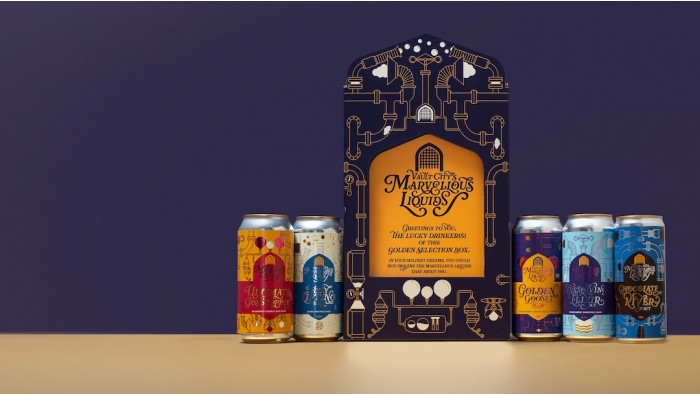What will it look like when millennials run the world?
Here's what politics will look like when the avocado-eaters are in charge


Depending on who you ask, millennials are lazy, too politically active, offensive, easily-offended snowflakes, socially and environmentally conscious (#vegan), and not socially or environmentally conscious enough (“You mean you don’t know where your avocados come from?”) .
These contradictory stereotypes have pervaded the press for years, but our generation will now make the news in a different way. A trickle of millennials have begun to ascend to world-leader status: like Sebastian Kurz, the besuited 31-year-old anti-immigrant chancellor of Austria who looks like an intern on his first day at Goldman Sachs. Or 27-year-old Matteo Ciacci, recently sworn in as Captain Regent of Italian microstate San Marino and the current youngest world leader. In 2017, New Zealand’s sunny Jacinda Arden (37, so on the Gen X-Y cusp) was swept to victory on a message of optimism and inclusivity.

Sebastian Kurz
Over in slightly less sunny and inclusive states, North Korean Supreme Leader Kim Jong-un, who has been leading the nuclear hermit state since 2011, is technically a millennial. His true age is unknown, but he’s thought to be around the 34 mark, and he currently could be making strides towards denuclearisation after a series of high-profile photo-ops and promises. Saudi Arabia’s Crown Prince, Mohammad bin Salman, 32, was billed as a great moderniser when his profile rose last year (although is now locking up activists at an impressive rate).
Slowly but surely, millennials are taking over the world. But what, if anything, links our generation of world leaders? And what can we expect from future millennial rulers?

Magid Magid’s inaugural photograph
At 28, Magid Magid is Sheffield’s youngest ever Lord Mayor – and also the first to go viral. Last month, Magid gained international press coverage after squatting atop a pillar in Dr. Martens for his inaugural portrait.
“I would say our generation stands for taking more risks, to be honest,” says Magid, when I ask what unites this new generation of millennial leaders. “And I would definitely say there’s a global outlook – just look at the music we listen to, the food we eat.” Globalisation means rulers have more in common with each other than in any previous generation: Kim Jong-Un reportedly likes electropop and James Bond films, while Mohammad bin Salman is allegedly “a fan of iPhones”.
“Millennials in the West are fortunate as we have more disposable money and can travel,” Magid goes on, explaining this means we tend to care about international causes “that don’t just affect our country” such as “global warming or Palestine”.
“People tend to have a broader perspective of what they’re aware of, as well as issues that affect them.”
Magid, who was born in Somalia, represents the Green Party, worked in digital marketing, and was on the third series of reality TV show Hunted. It would be difficult to accuse him of seeing the world through a narrow lens.
“Look how easily we can communicate with other people,” he says. “The internet has definitely changed our outlook on the world.”
“The distinction between online and offline won’t exist”
Samuel Johnston, a sociologist writing a book on millennial politics, says that while they sit across different cultures, having come of age with the internet is key for most millennial leaders.
“Younger millennials – the so-called snowflakes – are more aware of the optics. There’s this sense, because this is the first generation to be fully internet native, that the distinction between online and offline doesn’t exist,” he says.
“There’s a lot more focus on presentation than on the nitty gritty.”
Saudi’s Mohammad bin Salman is certainly aware of optics. When he visited London in March of this year, the kingdom flooded the capital with billboards lauding the strong relationship between the UK and Saudi Arabia. One poster showed a woman in an abaya (a robe-like dress) at the wheel of a car, and underneath read: “He is empowering Saudi Arabian women,” referring to his decree that women should be allowed to drive.
Seemingly progressive, these optics hide real political turbulence – in May, 11 women’s rights activists who fought to lift the Saudi driving ban were arrested.

A billboard from Mohammad bin Salman’s campaign
Historically, politicians have been perceived as evasive – but something else that sets millennials apart from their political predecessors is how they angle their messages, leaving no room for misinterpretation.
“It’s interesting the way younger people put the anticipation of interpretation on the creator rather than the audience,” Johnston says (who hasn’t spent too long wording and then re-wording a tweet or a status to avoid backlash?). “If someone doesn’t understand something then it’s your fault for not anticipating the context and how it could be interpreted rather than the audience’s fault for not seeking that context out.”
This means long discussions and debates will be out in favour of shorter, sharper messages that look good and cannot be misunderstood. Notably, Magid Magid recently called Donald Trump “a piece of shit”.
Yet with someone like Austria’s Kurz, who cheerfully formed a coalition with the anti-immigration Freedom Party last year, social-media savviness can actually be “very dangerous.”
“That’s what makes the alt-right dangerous too,” Johnston says. “They are very understanding of the media management, they are very aware of what they look like and how it can win over people.”
Last year, Kurz announced plans to cut benefits for refugees while standing on the Kahlenberg hill outside Vienna. Alt-right vloggers quickly noted this was the exact location where the Ottoman Muslim invasion of Europe was stopped in 1683. Kurz denied any symbolism.
“There’s not a lot of appeal for young people. There’s a lot of mistrust.”
While present-day politicians can gain better control of their profiles, the internet remains a major challenge for millennials wanting to assume leadership positions in the future. People who find themselves running for office in ten years could be haunted by their online pasts.
“It’s about whether one has a private world,” says Dr Suzanne McDonald-Walker, a senior lecturer in International Relations & Politics at Northampton University. “That’s what makes the difference between generations, and that’s what’s harming a lot of young activists, because they don’t think about what they put on social media.”
Despite the fact that millennials are rising through the ranks and tend to be more progressive than their predecessors, their methods must be questioned, McDonald-Walker says.
“Are young people more active now?” she asks. “That begs the question, ‘what is activism?’ – is it clicking on a link? You have to argue it’s not.”
Magid argues that a lack of representation has dampened the political desires of his generation. “There’s not a lot of appeal for young people to get involved – whether because of lack of housing, jobs, even if you look at the basic thing of leaving uni with a massive debt. There’s a lot of mistrust.”
While it may be easy to write off millennials as superficial on social media, the ones who will come to the political fore in the coming years are at least trying to make positive, meaningful change. “I think there’s a tendency to write off millennial politics, but they are often doing things that are trying to establish a more fair society,” the researcher Johnston says.
The nature of what millennial politics will look like when the world is truly under our rule remains to be seen, but one thing is for certain: the revolution will be streamed, not televised.
(Pics: Chris Saunders, Getty)
Latest
Related Reviews and Shortlists









